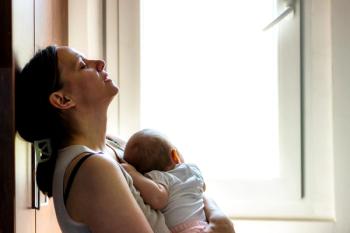
- Vol 41, Issue 4
A New Conference Series: Improving Black Youth Mental Health
Are you ready to discuss the Black youth crisis and the need for dynamic conversations?
CLINICAL CONVERSATIONS
The inaugural Black Youth Mental Health Clinical Case Conference Series at Yale Child Study Center, a 6-session event in 2024, provides a space for expert-led conversations that focus on improving mental health care for Black youth and their families. This conference series is created and directed by Amanda J. Calhoun, MD, MPH, chief resident and child psychiatry fellow at Yale Child Study Center/Yale School of Medicine. Psychiatric Times sat down with Dr Calhoun to discuss the Black youth crisis and the need for dynamic conversations on this subject.
PT: Let’s talk about the youth mental health crisis, specifically for Black youth. What are some of the more pressing psychiatric issues?
Calhoun: We are indeed in the midst of a youth mental health crisis, but it is important to acknowledge that Black youth have been in crisis for over 20 years and are not showing signs of improvement. One aspect of mental health that has been highlighted in the recent Johns Hopkins report on suicide prevention, a follow-up to the groundbreaking Congressional Black Caucus report, are Black youth suicide rates, which are rising faster than those of any other racial/ethnic group.1,2 Black children as young as 5 years old are nearly twice as likely to die by suicide compared with white peers.3 In contrast, the suicide rates of other racial/ethnic groups, except for Latinx and American Indian/Alaskan Native youth, have remained the same or declined, even from 2019 to 2020, during the pandemic.4
Inappropriate/inaccurate diagnoses continue to be a problem for Black youth, which leads to poor care. Black youth are more likely to be diagnosed with disruptive mood disorders, diagnoses rife with stigma and tied to minimal interventions, while white children with comparable symptoms are more likely to be diagnosed with attention-deficit/hyperactivity disorder, one of the most highly researched areas in pediatric mental health.5 Black adolescents are also more likely to be diagnosed with schizophrenic spectrum disorders and conduct disorders, both stigma-laden diagnoses, than white adolescents, who are more likely to be diagnosed with major depressive disorder.6 These are old research studies, now several years old, so new research is needed, but I very much see this play out today in my own clinical work.
I work across multiple hospital systems and have witnessed Black children be excessively and inappropriately physically restrained. My observations are not unique and are backed by data, in a recent research study I coauthored: Black children are the most likely to be physically restrained in emergency departments.7
The elephant in the room is that experiences of anti-Black racism are tied to suicidality, yet it is rarely talked about in medical spaces, even when medical professionals themselves are the ones engaging in racist behavior.8 I believe that anti-Black racism is a major driver of the Black youth mental health crisis and something that we need to start talking about and holding individuals accountable for.
PT: In a previous article for Psychiatric Times, you shared that you commonly see a lack of empathy toward Black patients, including toward children.9 Is that why you chose to start this conference series? How do you hope conversations like these will help alter the pervasive anti-Black racism in mental health care?
Calhoun: Yes, I do see a lack of empathy toward Black patients, including children, specifically in non-Black individuals. I am used to being treated with less respect than my white colleagues, even as a physician, but what really upsets me is the lack of empathy I have seen toward Black children who are struggling, which is a national problem, and not a new one. Seeing Black children as less than human, as less capable of feeling emotions or pain or needing comfort is a long-standing racist mind-set. I created this series to gather people together in the same space who want to change that. I created the series to have high-level conversations about how we can better protect Black youth and improve their care in the midst of rampant anti-Black racism that exists in this country.
PT: Can you share a little about the experts who will be presenting and participating in this conference series?
Calhoun: Our first conference, which was held on January 16, had 3 expert discussants: Carolyn Roberts, PhD, MA; Howard Stevenson, PhD; and Terrell Holloway, MD. They represent a very diverse expertise. Dr Roberts is a historian and professor at Yale who studies the history of race and racism in medicine, among many other topics. Dr Stevenson is a renowned psychologist who works with Black youth on how to respond to racist scenarios in the moment. Dr Holloway studies the effects of racism on the brain. Some other expert discussants include an environmental and religious scholar, a general psychiatrist who studies music as a form of therapy, and a child psychiatrist who works with youth in the juvenile court system. I specifically chose experts in the mental wellness of Black youth from a variety of disciplines, not just psychiatrists, because I think that we need to expand beyond the walls of psychiatry to help Black youth. We need all hands on deck.
PT: What takeaways can attendees expect to bring back to clinical practice? What do you want them to remember when they walk away?
Calhoun: I want them to remember that anti-Black racism is alive and well today and leading to lapses in care of Black youth. I want them to remember that it is crucial to take a stand and speak up for Black youth and their families. You may save their life.
PT: Is there anything else you would like to share?
Calhoun: I am particularly excited about this case conference series because I created it to be unique in a few ways. Clinical case conferences usually focus on the problematic behavior of the patient or the rare effects of a medication. But what if one of the main problems, leading to the lapse in mental health care of the patient, is the racist behavior of the medical team? There are no spaces to safely discuss these cases without fear of retaliation. So I created one. In this series, I took anonymized cases from around the country and developed them into presentations that start and end with a narrative, a story. I want the audience to understand the issues we discuss whether they are a mental health professional or not. Even more so, I want conference attendees to feel like they know the child we discuss. I want them to feel like, if a group of children walked into the room, that they could easily pick out our patient. I did this to humanize Black children because they are so often reduced to a negative stereotype. How can you talk about the mental health care of a patient who you do not even know as a person?
For more information on this conference:
Dr Calhoun is an adult/child psychiatry resident at Yale Child Study Center/Yale School of Medicine. She is an expert on the harms of medical racism and the mental health effects of anti-Black racism in children.
References
1. Still Ringing the Alarm: An Enduring Call to Action for Black Youth Suicide Prevention. Johns Hopkins Bloomberg School of Public Health Center for Gun Violence Solutions. August 23, 2023. Accessed February 9, 2024.
2. Ring the alarm: the crisis of Black youth suicide in America. National Action Alliance for Suicide Prevention. 2020. Accessed February 9, 2024.
3. Bridge JA, Horowitz LM, Fontanella CA, et al.
4. Meza JI, Patel K, Bath E.
5. Fadus MC, Ginsburg KR, Sobowale K, et al.
6. DelBello MP, Lopez-Larson MP, Soutullo CA, Strakowski SM.
7. Nash KA, Tolliver DG, Taylor RA, et al.
8. Walker R, Francis D, Brody G, et al.
9. Calhoun A. The Black youth mental health epidemic: a crisis in its own right. Psychiatric Times. April 5, 2023.
Articles in this issue
almost 2 years ago
Assessing and Treating Insomnia in Older Adultsalmost 2 years ago
Connections Between Food Additives and Psychiatric Disordersalmost 2 years ago
Unraveling Minds: The Impact of Global Climate Change on Mental Healthalmost 2 years ago
Exploring the Connections Between Mental Health and Our Environmentalmost 2 years ago
The Garden of Edenalmost 2 years ago
Feds Ease Restrictions on Treating Opioid Addiction via Telehealthalmost 2 years ago
Management of Borderline Personality Disorder in an Obstetric Unitalmost 2 years ago
Suicidealmost 2 years ago
Celebrating EarthNewsletter
Receive trusted psychiatric news, expert analysis, and clinical insights — subscribe today to support your practice and your patients.







